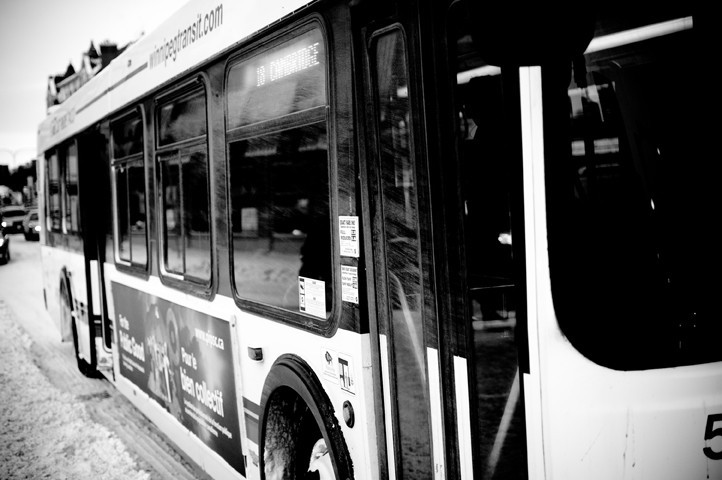Transit fares discriminate against people with disabilities, students argue
Higher Handi-Transit costs mean higher fares: Winnipeg Transit
Students at the Disability Resource Centre (DRC) at the University of Winnipeg are not happy with the state of the city’s Handi-Transit system. The two major concerns of the students are the fare and scheduling structure.
Danielle Otto, a student who uses Handi-Transit in the winter, believes the fare structure is discriminatory. She points to the monthly Handi-Transit pass, which costs $74, yet the student bus pass for regular transit costs $59.
People with disabilities can apply to Winnipeg Transit for a free pass to pre-determined bus routes. Some students with disabilities are not able to make it to the bus stop in certain months of the year, however, and opt for the Handi-Transit pass.
“You’re not supposed to take the [power] wheelchair outside below -20. The joystick freezes,” said Otto. “I use regular buses when I’m able to do so.”
Otto added that people with some disabilities, such as legal blindness, aren’t able to use regular transit, even in the summer months.
Winnipeg Transit has refuted the claims of discrimination because regular transit and Handi-Transit are two different programs with different costs and organizational structures.
The price difference between a Handi-Transit pass and a student regular bus pass is $15, whereas running the Handi-Transit program is more than 10 times the cost of operating the city’s bus transit, according to Catherine Caldwell, manager of client services at Winnipeg Transit.
“Everyone is told about [the free bus pass],” said Caldwell. “Whatever level they utilize the regular transit is up to them.”
The other major issue brought up by students at the DRC is the way Handi-Transit is scheduled. Otto said there is not much flexibility in terms of pickup times.
“Sometimes, if classes end at three and they’re not able to come until six, I’m stuck at school for three hours,” she said.
The other side of the coin is the policy on cancellations, according to the DRC. If someone cancels their trip after 11 a.m. on the day before pickup, they are considered a no-show. Penalties include no charge the first time, a charge of one fare the second, two fares the third, three for the fourth and a $15 charge for the fifth and all subsequent no-shows.
“The only way we can make it work is by making a predetermined schedule,” said Caldwell, adding that Handi-Transit does accept late bookings and has a three-tier priority system, which means the person going to a medical appointment will receive consideration over the person going bowling.
“If we could have a system that could perfectly accommodate everybody, that’s what we’d like to do,” Caldwell said.
Published in Volume 64, Number 17 of The Uniter (January 28, 2010)








